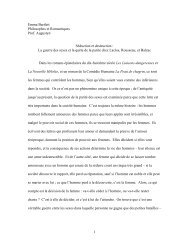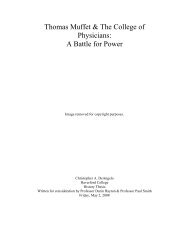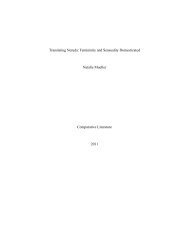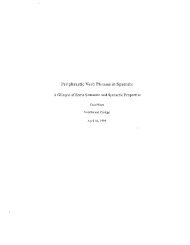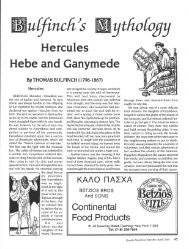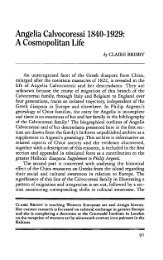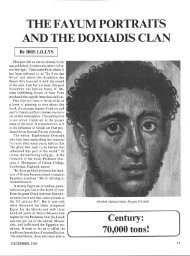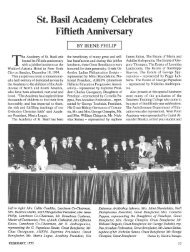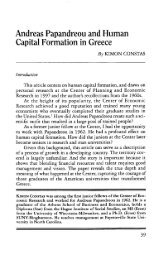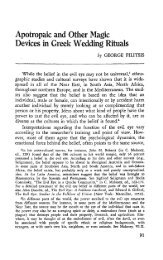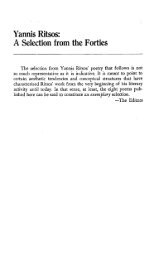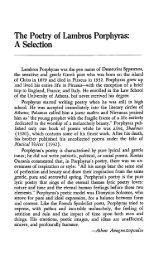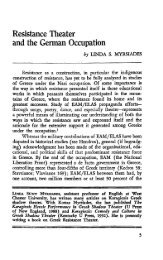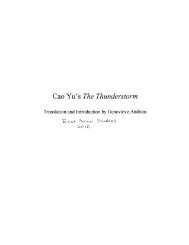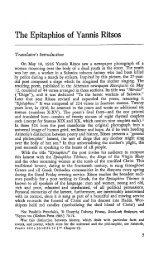Mythistorema - Triceratops Home
Mythistorema - Triceratops Home
Mythistorema - Triceratops Home
You also want an ePaper? Increase the reach of your titles
YUMPU automatically turns print PDFs into web optimized ePapers that Google loves.
50 JOURNAL OF THE HELLENIC DIASPORA<br />
With desires that flashed like big fishes<br />
In seas that suddenly shrunk:<br />
We used to believe in the omnipotence of the body.<br />
And now the new moon had risen in embrace<br />
With the old moon; and the beautiful island lies<br />
Wounded and bleeding, the calm island, the strong, the<br />
innocent.<br />
And the bodies like broken branches<br />
And like roots torn from the ground.<br />
In both of these cases the wounding or sinking of an island is connected<br />
with an experience the protagonist now regrets or is trying to<br />
forget. By analogy, the disappearance of the beautiful islands in poem<br />
"8" of <strong>Mythistorema</strong> may also be connected with something in the<br />
protagonist's past which could be behind the failure of the present<br />
desperate journey.<br />
9<br />
Poem "9" begins with the indecision of the protagonist, who cannot<br />
bring himself to set out on a journey. He remains in the old harbor in<br />
spite of his unbearable loneliness and even though he feels he can no<br />
longer wait for his companions, who left each in a different direction.<br />
There is a certain ambiguity in the description of his situation: one would<br />
expect this feeling of desolation to be the result of the desertion of a<br />
single beloved person rather than of several, but the poet succeeds in<br />
this way in conveying the terror of a complete abandonment. He is trying<br />
to gather some strength in order to leave the old harbor.<br />
I stroke the rusty cannons, I stroke the oars<br />
So that my body may revive and make its decision.<br />
These two lines provide a direct connection again between love and<br />
the symbolic journey, since revival of the body would be equivalent to<br />
setting out on a journey. Yet, this is not easy for the protagonist to<br />
accomplish because, as he says in the next lines, "The sails give out only<br />
the smell/ Of the salt spray of the other storm"; the indecision is due to<br />
the memory of the previous journey, which must have ended in disaster.<br />
It is probably the journey referred to in poem "1" of <strong>Mythistorema</strong>, from<br />
which the protagonist and his companions returned "broken,/ Weak in<br />
the limb, mouths ravaged/ From taste of the rust and of the brine."<br />
His decision to live in solitude represents a negative attitude, most<br />
probably owing to a very deep wound. The situation is parallel to that<br />
of the man described by Stratis the Sailor in an earlier poem of Seferis."<br />
40"Stratis the Sailor Describes a Man."



